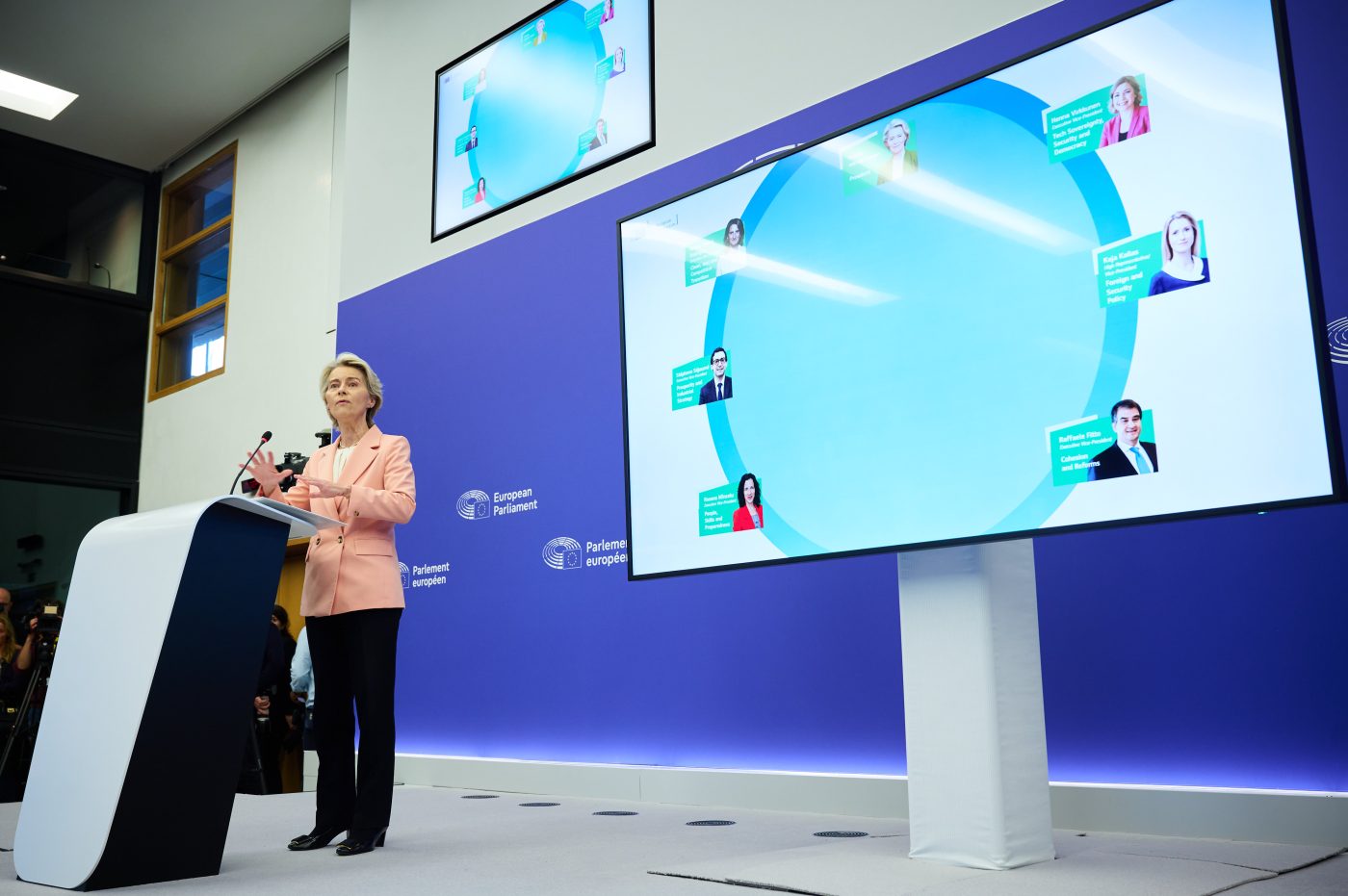European Commission President Ursula Von der Leyen designated a slate of new Commissioners and delivered each a specific Mission Letter. The letters reveal Von der Leyen’s political will — Brussels is waking up.
Out is a crusade to regulate. In is the need to increase European competitiveness. Former Italian Prime Minister and European Central Bank president Mario Draghi’s long-awaited report on European Competitiveness provided the needed wake-up call. It’s an indictment of the past two decades of European industrial policy, which has left Europe trailing both the US and China in growth and innovation. Europe finds itself plagued by regulatory fragmentation, stagnant productivity, and lagging tech investment.
The Draghi Report offers clear solutions. It calls for unifying the fragmented continental capital markets and cutting administrative friction. A one-stop shop should be created for corporate compliance, business creation, and investment. Europe needs to end its obsession with measures guarding against “potential yet undetermined risks.” Instead, innovation must be prioritized.
President Von der Leyen’s mission letters to her new designated commissioners show that Brussels accepts the dire diagnosis, and is ready to take the medicine.
Regulation has become almost a dirty word. The president expects all Commissioners to contribute to reducing company reporting obligations by at least a quarter and 35% for small companies. A new dedicated small business passport, a Single Market Barriers Prevention Act, and a Single Digital Gateway should be launched to ease work, study, and business across the continent.
Innovation is in vogue. Irish Commissioner Michael McGrath is charged with easing administrative compliance in a boost to innovative startups. The project echoes calls from European tech founders and entrepreneurs. A new European Innovation Act will “facilitate access to venture capital for European innovative startups and scale-ups.”
Another priority is smoothing Europe’s onerous GDPR privacy rules. McGrath’s mission letter asks for GDPR enforcement that “responds to commercial needs,” “remains in line with the digital transformations,” and that will “promote trusted data flows with international partners.” It’s a stark shift. Current GDPR enforcement hinders legitimate data processing, and international data-transfers, including crucial transatlantic flows.
Perhaps the most important personnel change concerns the digital portfolio. Outgoing French Commissioner Thierry Breton was a vocal champion of European sovereignty and tweeted threats to reign in Silicon Valley excesses. Before Elon Musk’s interview with Donald Trump, Breton warned about spreading “harmful content,” a call criticized for stifling free speech.
Breton’s resignation letter alleged that President Von der Leyen placed a call to French President Emmanuel Macron and told him that she wanted a new French candidate. If Breton stayed, France would only receive a minor portfolio. Breton’s replacement, outgoing French Foreign Minister Stéphane Séjourné, received a coveted Executive Vice President post for Industrial Strategy.
The most notable new tech face is Henna Virkkunen, Executive Vice-President for Tech Sovereignty, Security, and Democracy. The straight-talking, center-right Finn is tasked with boosting digital competitiveness and productivity, including “the timely and predictable implementation of the European Digital Rulebook.” Translation from Eurojargon: she should simplify compliance with the new Digital Markets Act, designed to reign in the largest digital gatekeepers, and with Digital Services Act, which aims to corral online illegal content.
Expect conflict over Europe’s ambitious green agenda. In recent months, farmers, business and others have expressed concern, often by demonstrating in the streets, that the rules designed to fight climate change are hurting competitiveness. Spain’s Teresa Ribera’s Commission mandate is to find the correct balance between sustainability and innovation.
Antitrust policy could ease, allowing the creation of European champions. In her mission letter, Ribera is instructed to “modernize the EU’s competition policy to ensure it supports European companies to innovate, compete and lead worldwide.” This could translate into relaxing the continent’s tough scrutiny of European mergers.
A clear intention exists to boost public and private investment in “deep-tech” and frontier technologies. The Draghi report called for mobilizing up to $900 million in Brussels-directed public spending. That could prove overambitious. Germany remains opposed to increasing the EU’s budget. Policymakers may find it easiest to focus on removing administrative friction.
The alarm bell is ringing. After centuries of leading the world in innovation, the new European Commission realizes that Europe must now catch up with China and the US. It’s an important step. The next five years will determine whether Europe can jumpstart its lagging competitiveness, or fall back into a slumber.
Kayvan Hazemi-Jebelli (Kay) is Senior Director for Europe at the Chamber of Progress, a technology industry association devoted to a progressive society, economy, workforce, and consumer climate. Kay has over fourteen years’ experience in digital policy and European law, having worked as a consultant, a lawyer in private practice, in the European Commission Directorate-General for Competition, in academia, and as Senior Legal Counsel at a leading media and communications company.
Bandwidth is CEPA’s online journal dedicated to advancing transatlantic cooperation on tech policy. All opinions are those of the author and do not necessarily represent the position or views of the institutions they represent or the Center for European Policy Analysis.

CEPA Forum 2024 Tech Conference
Technology is defining the future of geopolitics.




